






President Kirsty Richards of National Legal Service (Family Lawyer)
Vice President
Massimo Trebar of Lawtons (Criminal Lawyer)
Hon Secretary and Treasurer Judith Gower
Immediate Past President
Diana Kirsch
University of Hertfordshire (Hatfield)
Members
Steve Hamilton
Taylor Walton LLP (Harpenden) Private Client
Marilyn Bell SA Law (St Albans) Family
Paul Davies
Hamilton Davies (Stevenage) Employment, Family and Litigation
Tahir Nisar Whiskers
Michael Scutt Crane & Staples, Employment and Dispute Resolution
Claire Sharp Debenhams Ottaway (St Albans) Private Client
Penny Carey (University of Hertfordshire)
(From January 2024 until 31 December 2024)
Neil Johnson Gisby Harrison Suna Duzgan National Legal Service
Alexander McDowall Hertfordshire County Council
Nicola Smyrl of Taylor Walton (Luton and an Employment Lawyer)
Laura Woolard of Taylor Walton (St Albans and a Family Lawyer)
National Council Member
Josephine Duchenne
National Council Member for Hertfordshire and Bedfordshire (from 15th October 2021)
The Law Society
Relationship Manager – East Jack Dunkley
Parliamentary Liaison Officer Judith Gower

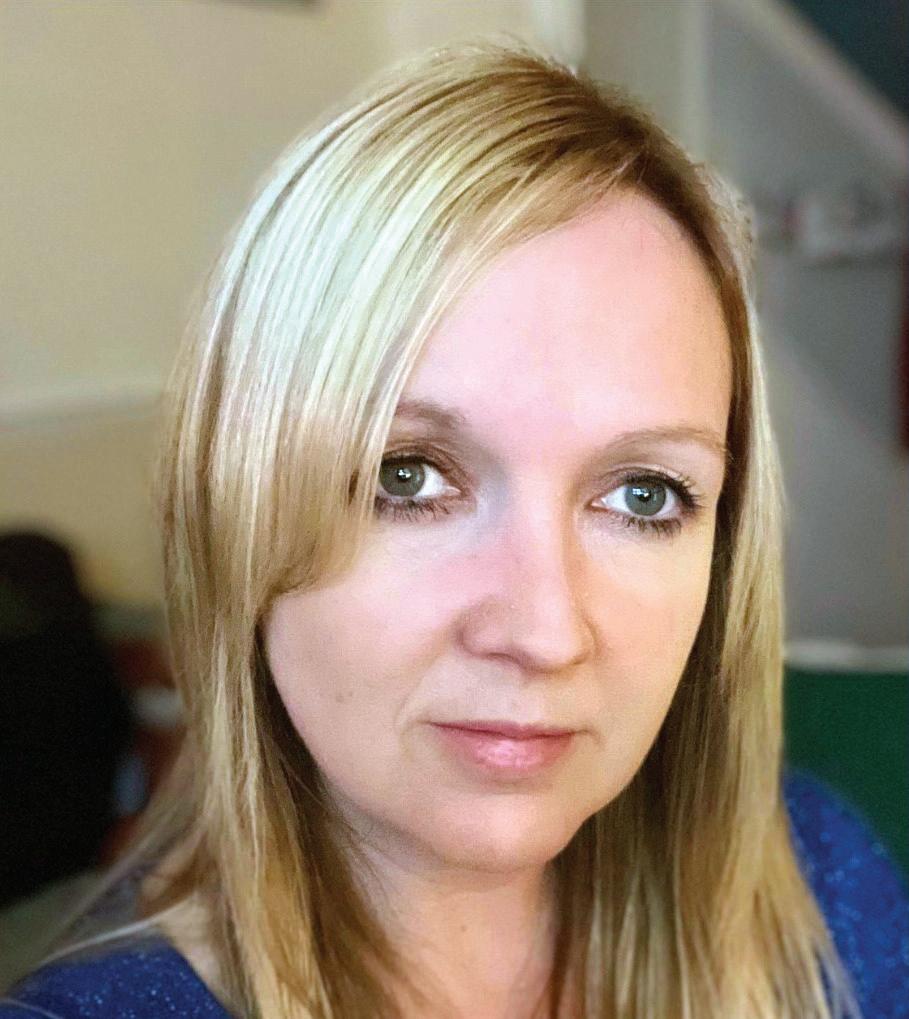
First and foremost, thank you to everyone for your support and attendance at the Hertfrodshire Law Society Annual Dinner and Awards. The night was a huge success and a full report with pictures from the evening are on pages 14-17.
Following the annual dinner, it has been nonstop as I received notice from Chancery Lane that I have been shortlisted for a Legal Heroes Award,
with results to be announced on 12 September 2024 at the ceremony being held at 113 Chancery Lane.
I was then really pleased to be invited to the High Sheriff of Hertfordshire’s Garden Party at Oaklands College. I was in the esteemed company of our former President Diana Kirsch and we strengthened existing relations in Hertfordshire and made some new ones too.
Annie Brewster, (High Sheriff of Hertfordshire) has invited me to The Justice Service at St Albans Cathedral on 17 November 2024 and I very much look forward to that.
I was unable to attend the second meeting of the year of the Southern Area Association of Law Societies (SAALS) and the Isle of Wight Law Society Annual Dinner, both scheduled for 5 July 2024, as I was at the Legal Aid Lawyer of the Year Awards 2024 but I hope to hear about the meeting from our Paul Davies
Turning to training for our members, on 5 June 2024, we had a lovely webinar from Kevin Leigh of 33 Bedford Row on some of the pitfalls of private landlord and tenant boundary disputes and having seen him again recently at another event on 28 June 2024 he is happy to put on a second sessions for our members if we think it will be well received.
On the 23rd July we also had a Family Drug & Alcohol Court (FDAC) training session which was co-hosted by the National Legal Service (my firm) and the Hertfordshire Law Society, and which was organised by past president of the Hertfordshire Law Society, Tia Hussain. As a family practitioner who deals with FDAC cases, I can say firsthand what a difference that process can make to children of parents with addiction issues.
Thank you everyone,
Kirsty Richards National Legal Service President, Hertfordshire Law Society
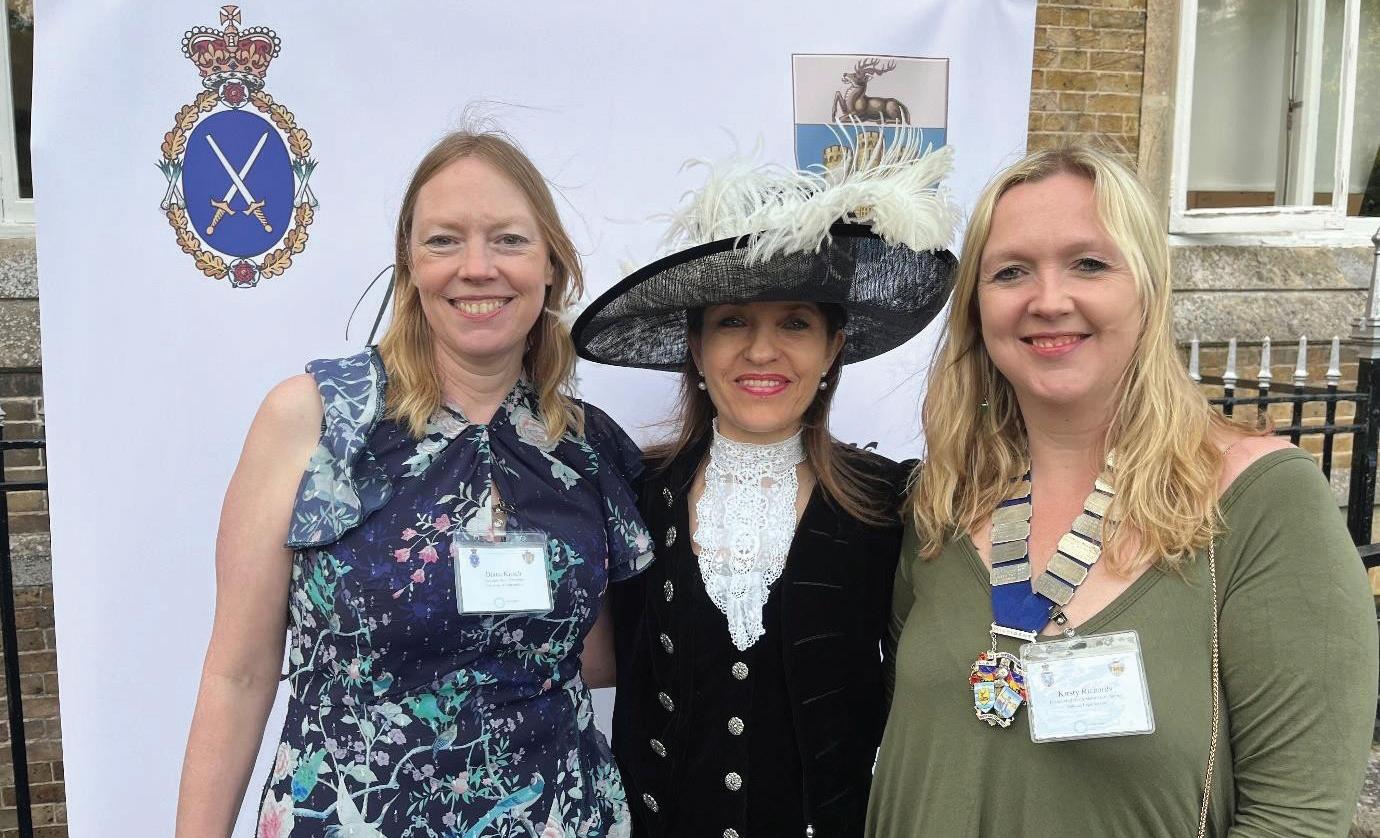
Well life has been interesting. My butlers left me for 2 weeks as they went on a river cruise. They visited Hungary, Slovakia, Austria and Germany. They came back totally exhausted! I didn’t mind because the wonderful Tara and her granddaughter looked after me so I was very spoiled.
They seem to go out to a lot of things, days here, there and everywhere. It does mean I can make myself comfortable wherever I want. The golden ones don’t seem to come here any longer my butlers go to them. I believe the reason is that number 2 golden one is moving very quickly round the place. She is very nearly walking and is only 10 months old. I do feel for their master Oliver having to put up with the 2 of them.
I don’t like the very hot weather as I can’t take my fur coat off and I don’t like water - even to drink. When it is very hot my butlers put pawsecco on my food. Yes it exists and is specially for princesses like me.
@princessgigi2019





Ihave been working for National Legal Service Solicitors for almost 5 years, during this time I have worked mainly with women that have suffered from domestic violence. I have learned that the legal system involves directly or indirectly different professionals. If I must list the ingredients for a recipe for disaster they would be lack of empathy towards gender violence, prejudice and pressure.
Throughout my daily work I have witnessed a lack of understanding from professionals when they questioned a woman for the reasons why the abuse was not reported before. The reality is that when a woman is trapped in a violent relationship, she may not be reporting the abuse because this would cause further violence at home, creating an ironic form of preservation: don’t contact the people who can help you, because that might cause more pain. The vicious cycle does not end, this woman must think what steps are needed to break such a cycle especially if this woman is an immigrant and does not speak English.
I work with Latin American women who suffer from domestic violence, I have witnessed fragile woman, unprotected in very precarious situations. However, every story is different, their journeys are dissimilar and cannot be compared to each other, they may just have a common element
which is pain. I would like to pay a small tribute to these strong women. When Lucia (not her real name) moved to England she brought her children with her as her husband had a new job in Brighton. She was financially dependent; she did not have family or friends in England. She also depended on her husband for her immigration status. The situation at home became unbearable when the violence escalated, there was verbal and physical abuse every day, the children were punished and constantly degraded by their own father. Lucia felt that if the situation did not change it may have a fatal ending. She would not call the police because her husband told her that by not speaking the language nobody would believe her, besides, the children would be taken from her by the police. Until one day, she risked everything and decided to make the call. She was questioned which made her feel vulnerable as she has been quiet for many years, she had to confess to a stranger the most intimate details of humiliations and painful situations, causing her to feel empty. Lucia does no longer feel human, some people may think that she was finally liberated but her painful journey continues.
Lucia thinks that she would not be believed as she has nothing. Her husband speaks English and would be able to speak to professionals that would listen to him, her credibility may be damaged as she does not know how to communicate with others. Why would professionals believe a woman that has nothing? Who would trust her? Lucia has now to feed her children and has sought help by applying for state benefits. After a long queue the first question she was asked was why she does not speak English after so many years here. Why is Lucia severely judged, a woman’s value is not based in her knowledge of the language, her value is more than that, she remains a human being despite feeling the opposite. Humiliated and believing people think she is lazy, a bad mother,
incompetent, when this is not the case. What people do not know is that her husband would not let her take a bus to go to a college to learn English, her husband would denigrate her daily, taking the slow walk to eroding her soul, piece by painful piece. He had imprisoned her in her language, and by refusing to let her study or practice English he had guaranteed that there was no easy escape.
She has been crucified by society which has let her down completely. Crying is how she wakes up in the morning and goes to bed at night. The first night in the council accommodation she had to sleep on the cold floor as cold and empty as she had become, an empty shell of the woman who arrived on the shores only a few short years before. She has cried so much that her tears blur her vision and can’t see what future she has. She has been degraded for so many years that she felt she has become invisible. Her home is empty, there is no furniture, no memories, no family and no friends. She sits on the floor and cries questioning how she ended up in this state.
Lucia remembers that she must attend the food bank the next day so she can feed her children, she tries to learn some words as she needs to take a bus and needs strength to do so, how do I ask for a ticket? Where is the food bank? How do I get back? Little tasks that are huge obstacles for her. Having been beaten, humiliated, starved for so long, she knows nothing else. Going to bed, she prays that her children have a better life than she. Having already all but given up. Lucia is broken.
The police have been visiting her and on at least one occasion demanded that her child translate some horrific, personal, shameful and intimate incidents to them. Their demands justified by the present lack of an interpreter; her one obvious chance of rescue hanging by threads.
As she escapes the humiliation inside
the home, so the demands from outside increase. Demands to get a job which is difficult without the language, learn the language, which is costly and inaccessible without a job, don’t be a burden. You’re welcome. She may have escaped a battle, but the war is far from over. An application form arrives, demanding Lucia goes to Court as the father wants to see his children, at least that’s what she thinks it says, she winces at the ghostly memories of the pain she has suffered to get this far, she must face up to the fears alone, and continue her painful journey. She is afraid that she will be judged, and she will not be believed, you can see the pain in her face, hear it in her voice and in her words. She is terrified. She
is trapped in the worst of nightmares, all but alone in a country of over 65 million people.
Why do we continue crucifying those that are the most vulnerable, where is the empathy? Where is the understanding? What has happened to our society? How do we break the cynical cycle, and start treating people, like Lucia, as people again. Not as numbers, or problems to be solved, not another name in another queue of desperate people. Not as a burden to society.
With a broken heart and full of doubts and uncertainty, Lucia attends court to be able to protect her children from a
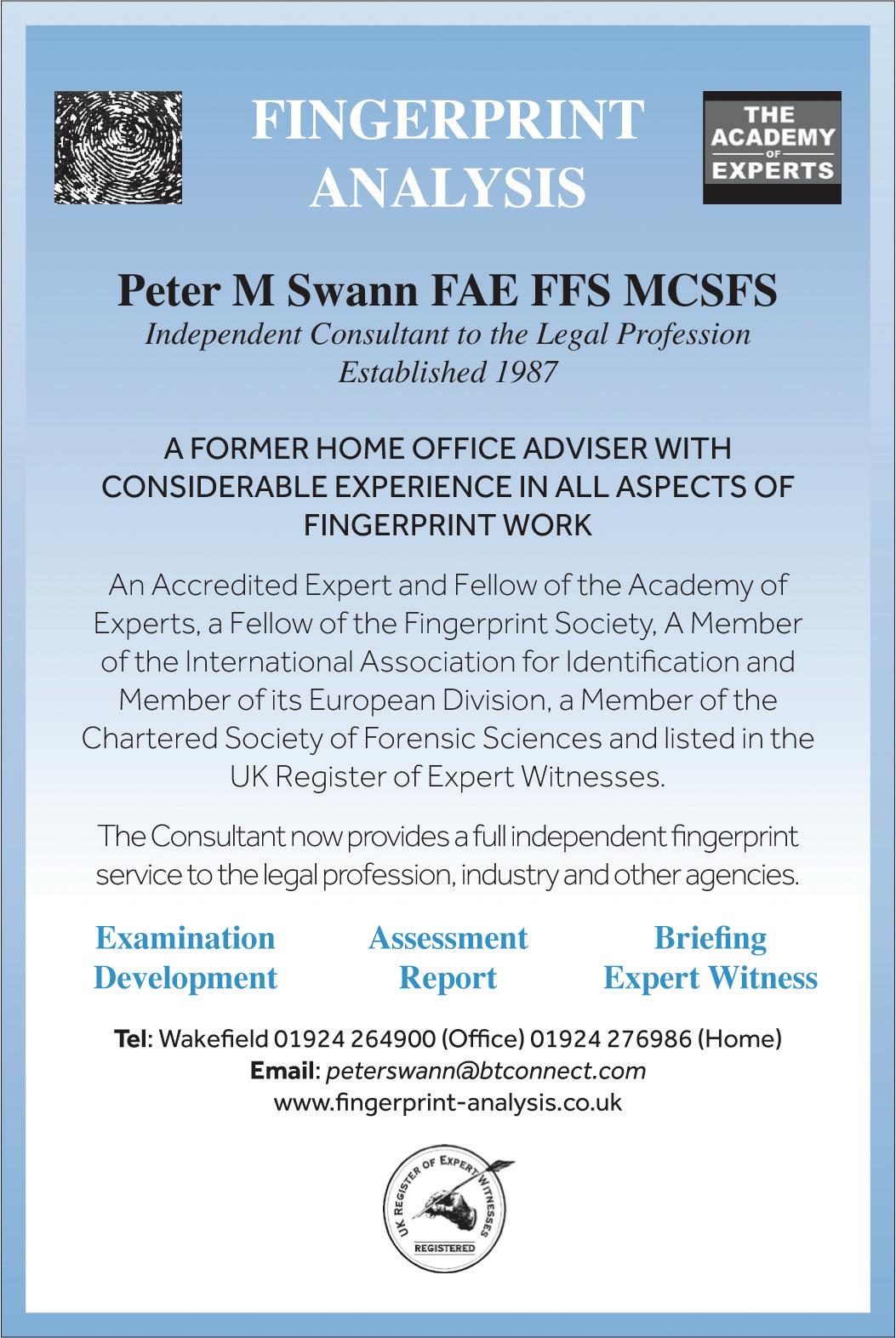
http://www.hertslawsoc.org.uk/
tyrant. Lucia feels that the current system cannot provide her with any sense of dignity, she wishes that there was more understanding for women that for some reason, cannot report incidents of violence to the police, more understanding for women that cannot speak nor understand English. Lucia escaped from a dangerous, damaged home into the bondage of a society too ignorant to engage in sympathy with a woman, because she doesn’t speak the language.
One day, when we stop judging women for speaking out, that day we will dignify them and vindicate them.
Dora Castro National Legal Service Solicitors
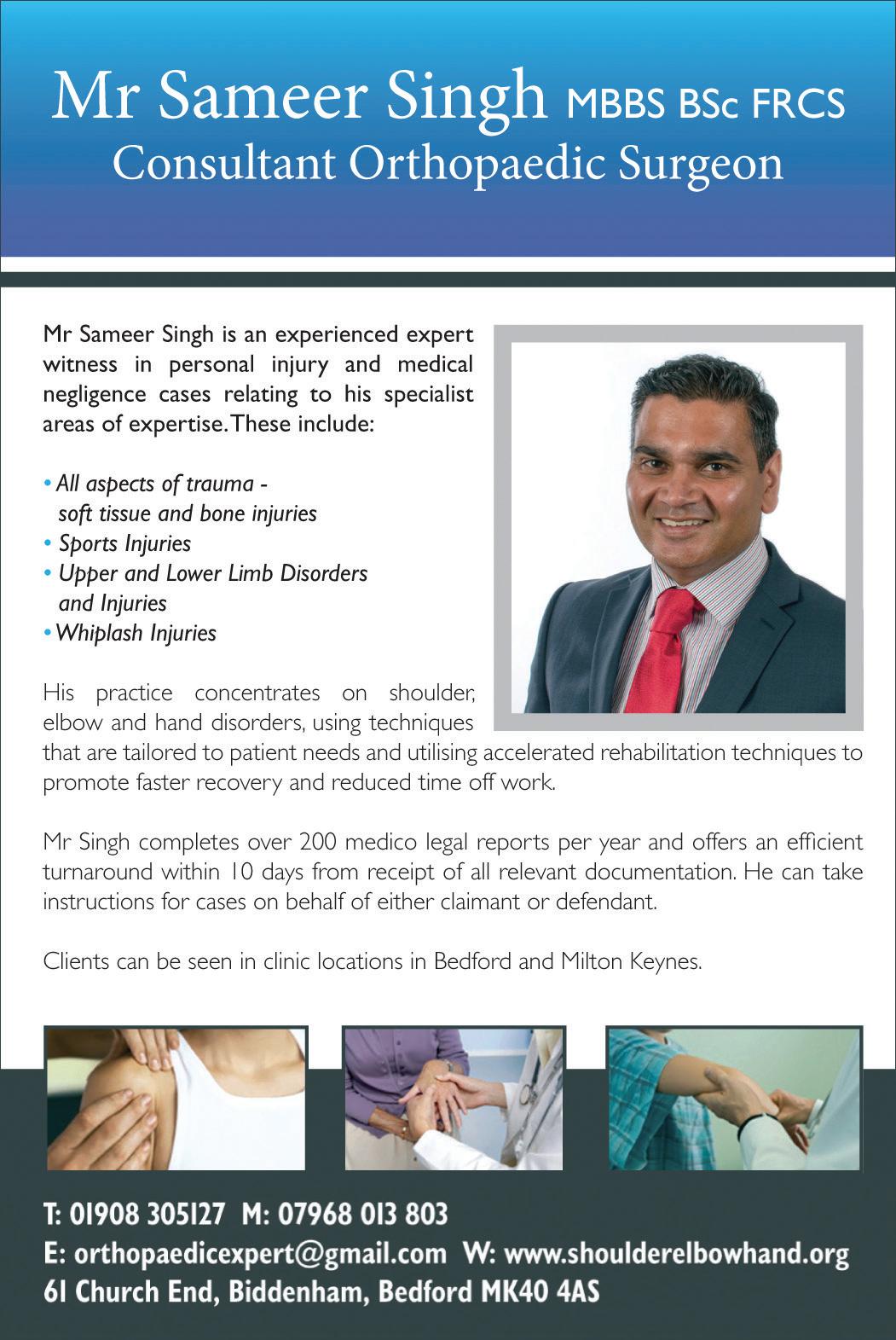

According to the latest government statistics, there are over two million Armed Forces veterans in the UK and around 13,000 individuals who leave the armed forces every year.
The statistics show that the majority of those leaving the services are of working age, actively seeking new employment opportunities. Despite this, research shows that some veterans find it difficult to transition into civilian life and often struggle to find and retain new employment.
Those already employing veterans have reported that they can be a highly valuable asset, as they benefit from a diverse range of skills and attributes which are of high value in the workplace, including strong work ethic, problem solving, leadership, communication and analytical skills.
Many employers are also unaware that when hiring veterans in their first civilian position after service, employers benefit from a National Insurance Contribution (NIC) holiday, providing them with relief from secondary NICs for the first twelve months of the veteran’s employment.
In spite of these benefits, employers often struggle to recruit and retain veterans in their workforce. This is perhaps unsurprising considering that a survey conducted by NHS England found that over half of veterans, active military
personnel and associated representatives reported currently having, or having had, a mental health condition (52%) or a physical health condition (54%). Moreover, almost two-thirds of respondents (60%) said that they found it difficult to ask for help with mental health issues, making it challenging for employers to identify issues and provide support.
Attracting candidates
Recognising the unique circumstances of veterans, in October 2023, the Government published “An Employer’s Guide to Hiring Veterans.” This includes recommendations of best practice when hiring veterans and is a good starting point for any employer who is looking to attract veterans to their business.
In line with the recommendations in this guide, a number of large UK employers now offer tailored recruitment programmes for veterans. For smaller businesses, engaging with the Career Transition Partnership (CTP) is a good first step. CTP provides support to individuals leaving service and connects employers to those looking for work, including by advertising vacancies in a way that is accessible and understandable to service users.
As well as taking steps to attract applications, employers should also consider reviewing their recruitment processes to ensure that they remain accessible to veterans. For example, employers should avoid using industryspecific language which veterans may be unfamiliar with and the interview process should allow veterans to speak openly about their skills and strengths so that employers can consider transferrable skills.
Where an employer has former military personnel within its organisation already, consulting with them may be
helpful. Specific training or guidance for hiring managers may also help to ensure that recruitment processes do not inadvertently exclude veterans from applying for roles, or from demonstrating their true qualities within their applications or interviews.
A recruitment campaign targeted at veterans can be useful. However, employers should remain conscious of their duty to operate recruitment practices in a non-discriminatory way. For example, it is possible that an employer which applied a policy of recruiting veterans ahead of other more suitable candidates may be committing sex or race discrimination given that most veterans are white males. Employers need to take a balanced approach. Employers should also be mindful that more than half of veterans will be affected by a physical or mental health condition, which amount to a “disability” for the purposes of the Equality Act 2010. To avoid claims for disability discrimination, employers will need to consider whether any adjustments should be made to the recruitment process to enable the individual to effectively participate. Employers must also ensure that they do not base recruitment decisions on the fact that a candidate has a particular medical condition.
Retaining and supporting veterans in the workplace
Once an employer has recruited a veteran into their workforce, they should then turn their mind as to how they can best support their wellbeing alongside their career development. This minimises the risk of associated problems – such as sickness and absenteeism – and maximises the prospects of retention. It is crucial that employers foster a supportive workplace environment. In this regard, employers should consider: 1. Increasing awareness. All staff should be aware of the potential issues which veterans may be navigating and should seek to take
an empathetic approach towards this. Specific training and guidance for line managers and HR staff may help to develop and reaffirm this understanding.
2. Mentoring and coaching. Mentoring is an ideal way to help veterans transition into civilian life whilst simultaneously providing them with workplace support and guidance.
3. Support network. A strong internal support network such as a peer network can also go a long way to helping veterans transition into the civilian workplace.
4. Mental health resources. Employers should ensure that appropriate mental health assistance is always available, for example, through an employee assistance programme or counselling services. A confidential and external resource such as this may be particularly beneficial given the number of veterans who say that they find it difficult to ask for mental health support.
Handling issues
In the event that issues do arise, it is important that these are handled compassionately, sensitively and proportionately.
Sickness absence
In particular, veterans suffering from mental and/or physical health conditions may be at an increased risk of sickness-related absences. In these circumstances, employers should adopt an understanding approach and consider whether they can make any relevant adjustments and whether an Occupational Health referral might be appropriate.
In cases of persistent or prolonged sickness absence, employers should meet and consult with the employee before making any decisions and consider whether obtaining medical evidence may help to establish the extent of the issue and what support can be provided.
In some circumstances, a veteran employee may benefit from a longer-term flexible working arrangement, in which case employers should consider to what extent they are able to facilitate such an arrangement without compromising their own business operations.
Alcohol and drugs
Research also shows that veterans are much more likely to struggle with substance dependency compared to the rest of the workforce. Combat Stress, the UK’s leading mental health charity for veterans, found that as many as 43% of veterans had a problem with alcohol misuse.
To help combat this issue, employers should treat substance dependency in a similar way to any other illnesses and take a sympathetic approach by encouraging individuals to seek specialist help and offering their support. This increases the chances of the employee making a recovery and returning to their full duties as soon as possible.
However, this is only possible where the employee’s dependency is identified and addressed. All staff, particularly line managers, should be alert to apparent changes in a veteran employee’s
performance or behaviour and should be encouraged to report their concerns. A substance misuse policy, which reflects the employer’s commitment to supporting those suffering from substance dependency issues, may help encourage selfreporting and reporting of others.
Summary
Overall, veterans can be a highly valuable asset to any business. However, in order to get the very best out of veterans during the recruitment process and in the workplace, employers must be alive to the challenges which they may face. Whilst it is not appropriate to stereotype all veterans as facing challenges in adapting to civilian life, where a veteran’s mental and/or physical health conditions may pose issues for an individual, the employer should seek to resolve these through an understanding and compassionate approach, seeking external advice and support where appropriate. To this end, employers should ensure that all staff understand the unique sensitivities of veterans and are able to identify when they require support and how to provide it, and that their training and policies reflect this approach.
Ethan Diver, Solicitor at Taylor Walton LLP
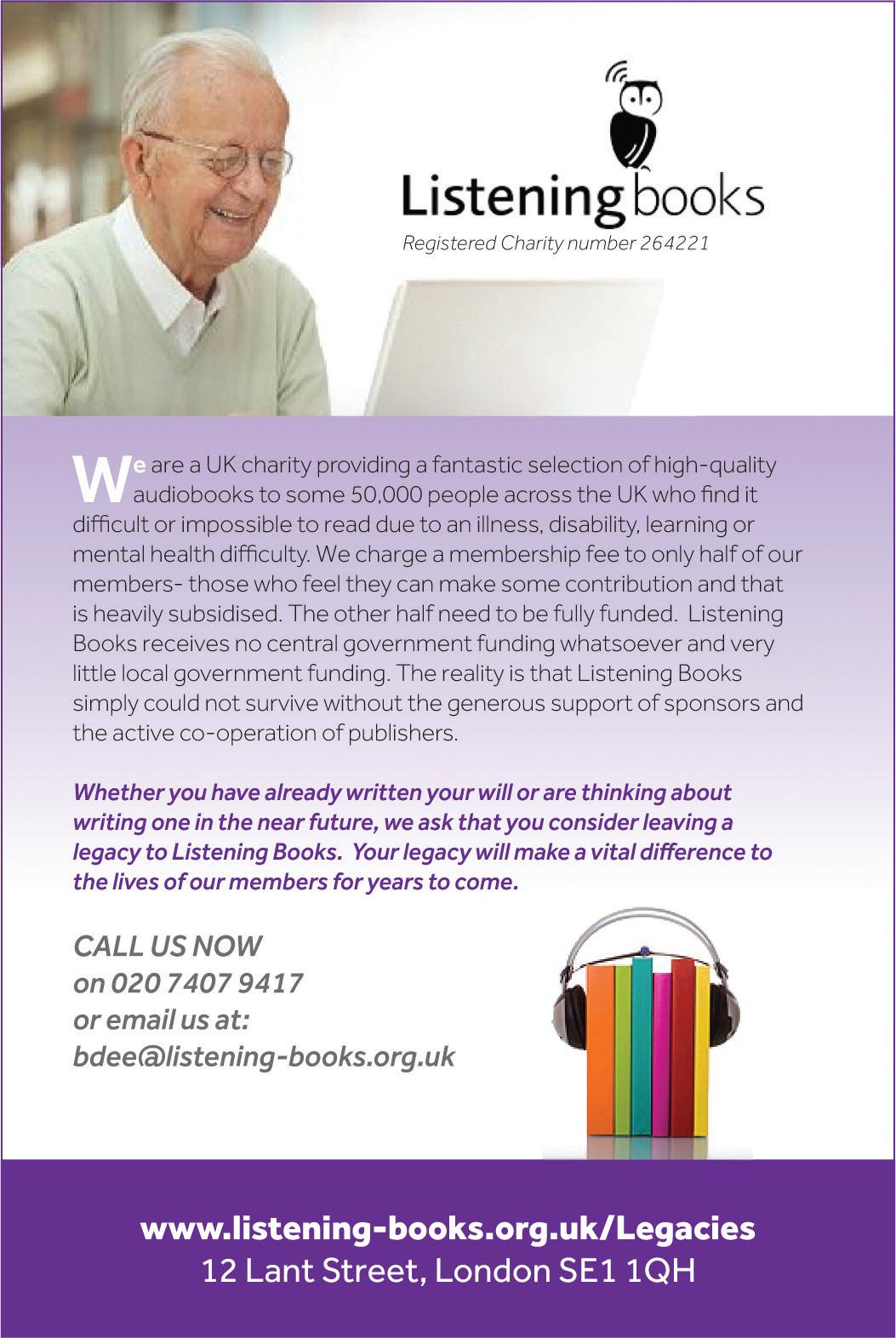
http://www.hertslawsoc.org.uk/
There may be those of you that saw coverage on The Lorraine show last week of the C4 documentary “The Truth about Spiking / Untold” by Daisy Maskell. It was a document that actually first aired in October 2023 but I didn’t hear about it at the time and I wonder if some of the readers of the Hertfordshire Law Gazette, are also unaware of it? You can view the documentary via C4 catch up and it is worth a watch.
Daisy gets spiked (in safe doses) on purpose, in an attempt to show how someone reacts and appears to outsiders – which, if anyone hasn’t seen anyone spiked it may be surprising to know that the victim can appear relatively normal.
Daisy is obviously in very safe and controlled environments for her spiking demonstration but it is still incredibly brave for her to endure that as she did not know what she was being spiked with and neither did she know how her body might react to the drugs administered to her.
When Daisy watches back the video of herself once spiked, she herself is surprised by how coherent she appears. Daisy describes feeling completely out of control of her physical body and not how it may have appeared.
Daisy speaks to various professionals in her documentary as to their views on why it has taken so long for spiking to become a criminal offence in its own right – (as there have been other crimes that may have been possible to charge someone with if a victim was spiked, as unsurprisingly, spiking is rarely the end of the incident – it can often lead to an assault of some kind).
Spiking as a criminal offence in its own right is a positive thing and it is only right that Daisy’s documentary was highlighted by The Lorraine show.
But, following on from recent articles I have published which aims to make
the reader feel uncomfortable in the stereotypes and views they hold; to make the reader challenge whether they are quick to victim shame and victim blame; with spiking, these concepts are only too prevalent. Coupled with the outward presentation of someone that has been spiked, it can be a highly traumatic and painful experience to go through for the victim, not only the assault itself but the lost opportunities to have been helped along the way.
The thing to remember about spiking as well, is that to get a positive drug screen, the victim need to present at hospital and have the relevant blood tests within 12 hours of being spiked. That may seem like ample time but when you consider that spiking itself can easily cause a minimum of 4 hours black out; the victim may then be in an unsafe environment and trying to get home for the next 4 hours; the victim may then be experiencing severe trauma and effects of the drugs for the 4 hours after that; that as they start to piece the events together, it can be easily be 24 hours later before there is any contemplation of a call to the police or a trip to the hospital.
Why? Well the victim also knows they may not be believed – such is our culture and response to violent crimes such as spiking. The victim goes through the thought process of “I was drinking –did I drink too much?”… “Will people say I brought this on myself?”… “Are my memories of the evening safe/ distorted?”… “What proof can I get that I was spiked?”
For some, they may be drink spiked and there may or may not be physical marks relating to any assaults that occurred. For others, they may have been needle spiked and may have a clear needle mark and bruising, evidence… validation… but is that enough?
For some reason, the general public still do not want to accept that we live in a society where spiking occurs. If they do accept that it occurs, then there are still
too many people that think the victim in some way had something to do with it ie. was drinking before hand or was wearing a short dress? Was in an unsafe area?
It is often easier to think, that wouldn’t happen to me because I wouldn’t do x, y, z. But that thought process needs to end. It doesn’t happen to a victim for any reason at all, other than they are a victim of a horrific crime. Irrespective of time, place and circumstance, it can just happen and we need to eradicate the victim blaming attitudes if we are going to support victims to report spiking to the police and get to the hospital for testing.
The new laws around spiking are meaningless unless victims are supported to report the crime in the first place.
We need to keep challenging our perceptions and understanding of violent crimes such as assault through spiking and instead of seeking to undermine a victim’s account of being spiked, we should start from a place of believing them and supporting them to get the help they need. With the new law, hopefully it will act as a deterrent to those seeking to carry out such awful crimes but I fear the police – as they are with domestic abuse – will not have the resource to deal with any uptake in reporting of spiking. As ever, it needs full government backing and funding to properly make a difference.
Support victims of spiking. This is something we can all do now and it takes no resource, it simply needs a shift in understanding of this type of assault.
Kirsty Richards President of the Hertfordshire Law Society


Held at the Old Palace but switched from the usual Thursday night to a Friday evening, we saw the venue attended by 200 guests – the largest turn out for years – and it was a truly remarkable evening.

The room was dressed with huge feather centre pieces, which complimented the High Sheriff of Hertfordshire’s traditional hat and white feather, and the usual banquet tables were swapped for round tables. So, a couple of changes this year but the core of the evening was steeped in the expected tradition that is HLS, with toasts and speeches throughout the evening, before we enjoyed a game of Heads & Tails and moved on to the all important HLS Excellence Awards and Raffle.
A few of my favourite photographs appear at the end of this article but the
full array of photos can be seen via the HLS website at :-
https://hertslawsoc.org.uk/news/annualdinner-and-awards-7th-june-2024-photos/
The guests were all welcomed in the Old Palace from 6.15pm on the evening and it was a real pleasure to see so many familial faces supporting me and supporting HLS in our event of the year. Thank you to our new HLS member firms for not only becoming members of our local law society but also for supporting our event and being present with a table on the night (Loretta Orsi-Bazanti of GN Law – a nod to you my friend).
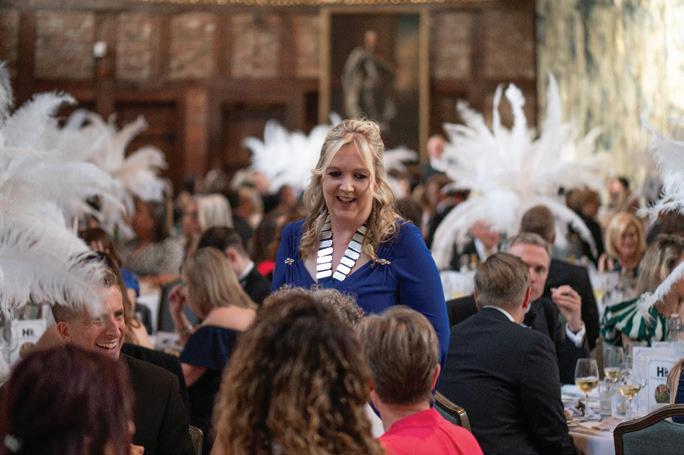
We were extremely fortunate that the sun came our so our guests could enjoy a champagne reception in the picturesque gardens outside of the Old Palace; a truly breathtaking backdrop to the evening and some lovely photographs were

captured from that half hour or so in the gardens (thank you Jeremy Banks for your photographic genius).
Guests were called to take their seats around 7pm whilst myself and my top table guests gathered in the bar ahead of the Top Table introductions and roll call. My top table guests were myself, Henry Hudson, Jenny Beck KC (Hon), Eko Shasholi, Mr Julian Daly of BBH Society of Chartered accountants, Ms Lisa Pharoah (President of Dorset Law Society), Massimo Trebar (VP of HLS) and Ms Annie Brewster (High Sheriff of Hertfordshire).
Entering the Old Palace and seeing every table full of smiles and tuxedos and fabulous outfits is a moment that will forever remain with me. At that moment, I knew the evening would be a success as the energy in the room was so full and positive.
After some initial toasts and a welcome speech from me, the guests were served with their starters and we were even blessed with a surprise guest appearance from Lord Salisbury’s dog. The 7th Marquess of Salisbury himself appeared to look upon the Old Palace guests and retrieve his dog ahead of the starters being cleared.
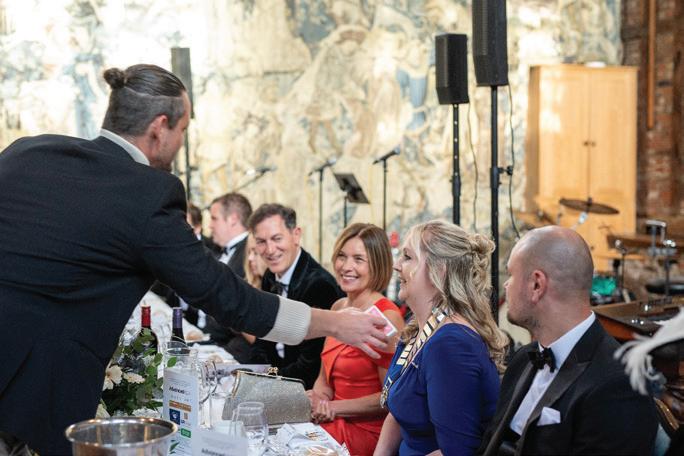
That then paved the way for my headline speech which discussed the pressures of legal aid lawyers, particularly, and the ever increasing reliance on and need for probono assistance in a time where commercially it is already so difficult to meet the rising costs if you are firm, like mine at National Legal Service, that sees 93% of its work funded by legal aid matters. I spoke about the inability to ignore the plight of those victims of domestic abuse that really need help in ongoing and linked private children law proceedings but are not eligible for legal aid and can not afford to pay any private fees. I spoke of my personal commitment to ensure access to justice and give those victims a voice, probono, whilst calling on every guest present to engage with all and every campaign that seeks to see a reverse to the devasting LASPO cuts and see an increase in legal aid fees; without which the country will surely see even more specialist family/ legal aid practitioners closing their doors.
My keynote speaker was the formidable Jenny Beck KC (Hon) and her speech was a continuation of the themes raised in mine, with discussions as to what is being done to seek a remedy to the devastation of LASPO and bringing about some hope and positivity as to the changes that are afoot and to Jenny, for your tireless campaigning, we are all truly grateful.
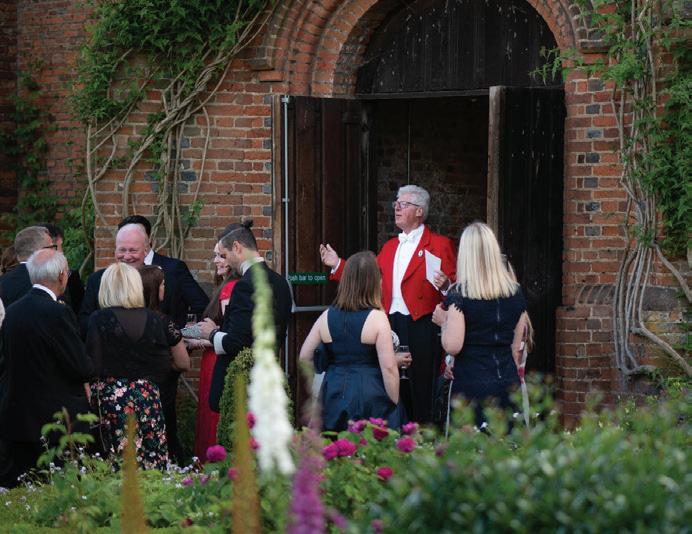
Further toasts took place and our guests were then served with their main courses which included a specially designed main course for our event and a big thank you to the Chef, kitchen teams and waiting staff for their work to make the evening
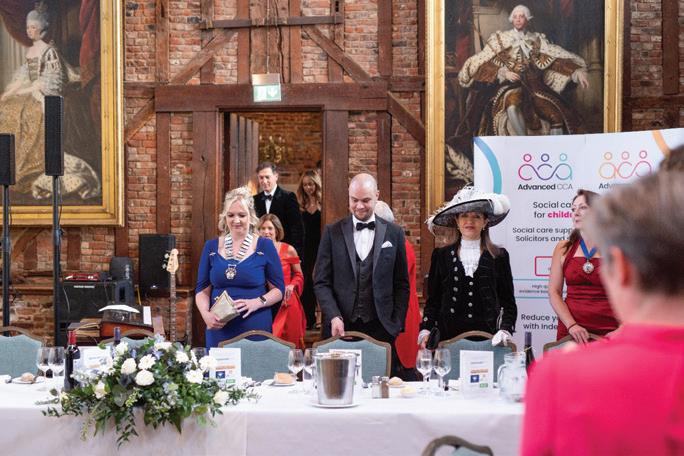
lovely.
After the mains we saw some tremendous efforts from two NQ solicitors, Harvey Daniel and Olivia Simpson of National Legal Service as they worked the floor and got everyone purchasing raffle tickets, the proceeds for which went entirely to my chosen charity – Rephael House. With toasts and recognition for all new solicitors and university of Hertfordshire prize giving, we also had a new award in this section of the evening, which was prize giving to the highest performing SQE candidates. So close were the top 3 that we actually awarded 3 with prizes – well done to Alisha Afzal (of Taylor Walton) and Olivia Simpson and Harvey Daniel (of National Legal Service).
Desserts, tea and coffee was then served ahead of the Law Society Excellence
awards and a huge thank you here to my headline sponsors – ACCA and Foresight – who also sat on the judging panel for the excellency awards this year. Again, this year, saw a record number of nominations for the HLS awards and long may that enthusiasm continue as it makes the awards all the more exciting and engaging. The winners of the HLS awards 2024 were:
Junior Lawyer of the year
Mischa McKevitt of Crane and Staples Lawyer of the year
Attia Hussain of National Legal Service
Law firm of the year
Taylor Walton Solicitors
Excellence in Diversity and inclusion
National Legal Service
Commitment to probono services
National Legal Service
The raffle was a huge number of winners thanks to our generous sponsors and supporters of the raffle and proceeds for the tickets, as well as proceeds for the Heads and Tails game and general donations on the night, saw a tremendous £1832 raised for Rephael House. One of the highest fundraising amounts achieved from our annual awards and dinner so thank you to every one for such generosity as those funds will make a massive difference to the work being carried out by Rephael House in providing mental health support services to children from the age of 4 through to young adults at 25.
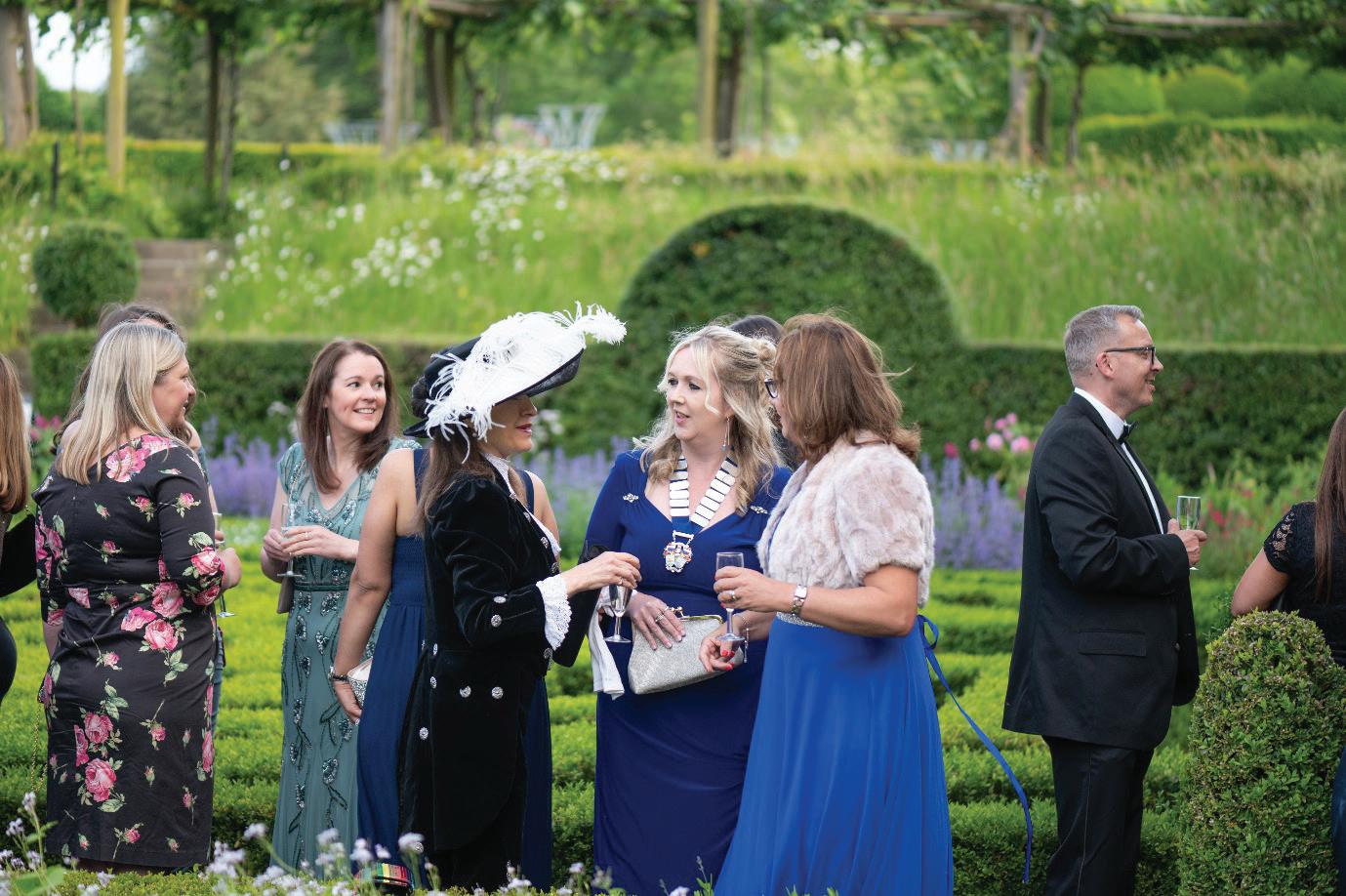
http://www.hertslawsoc.org.uk/
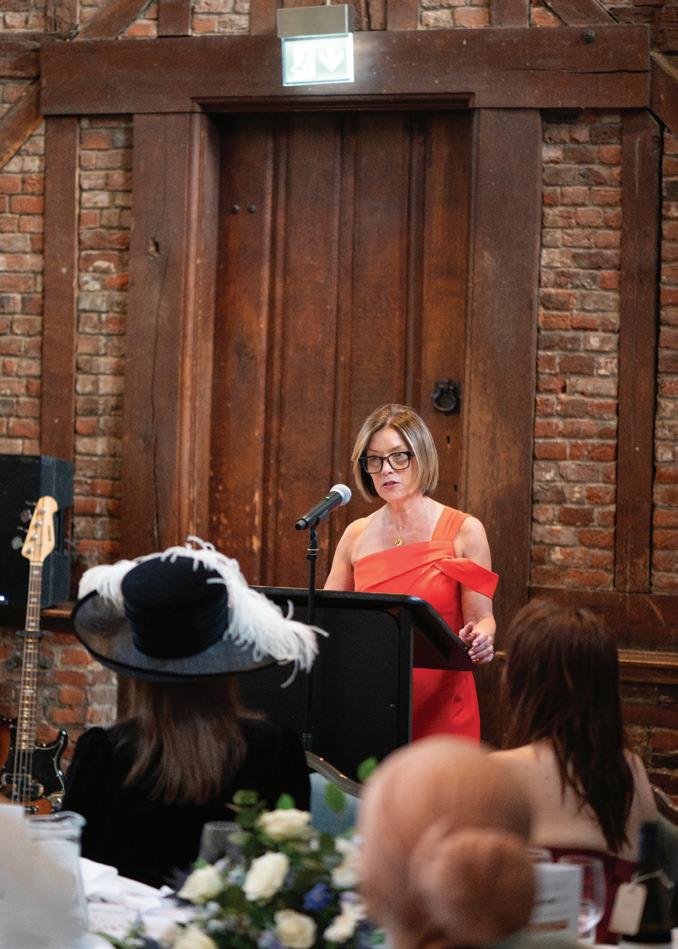
The evening did not stop there; as half the tables were cleared to make a dance floor so that our guests could enjoy the music from Time Flies, with lead guitarist being HHJ Perusko and the band fast becoming a feature of the HLS awards and dinner at Hatfield House.

Other entertainment was weaved throughout the evening via the incredible close up magician, Ben Wolfe, caricaturist, Dan Pilkington and OMG Entertainment who provided the photo pod in the bar area with props and fun for all that posed. The night was a huge success but could not have been possible without the support of our sponsors, Advanced CC, Foresight, National Legal Service, Garden Court Chambers, LR Legal, Sworders, Nuffield Health, 1GC – thank you so very much.
I hope that everyone who attended enjoyed the evening as well and for those that were not able to join us, I hope that this run through of the evening gives you a flavour of the night and that we can see
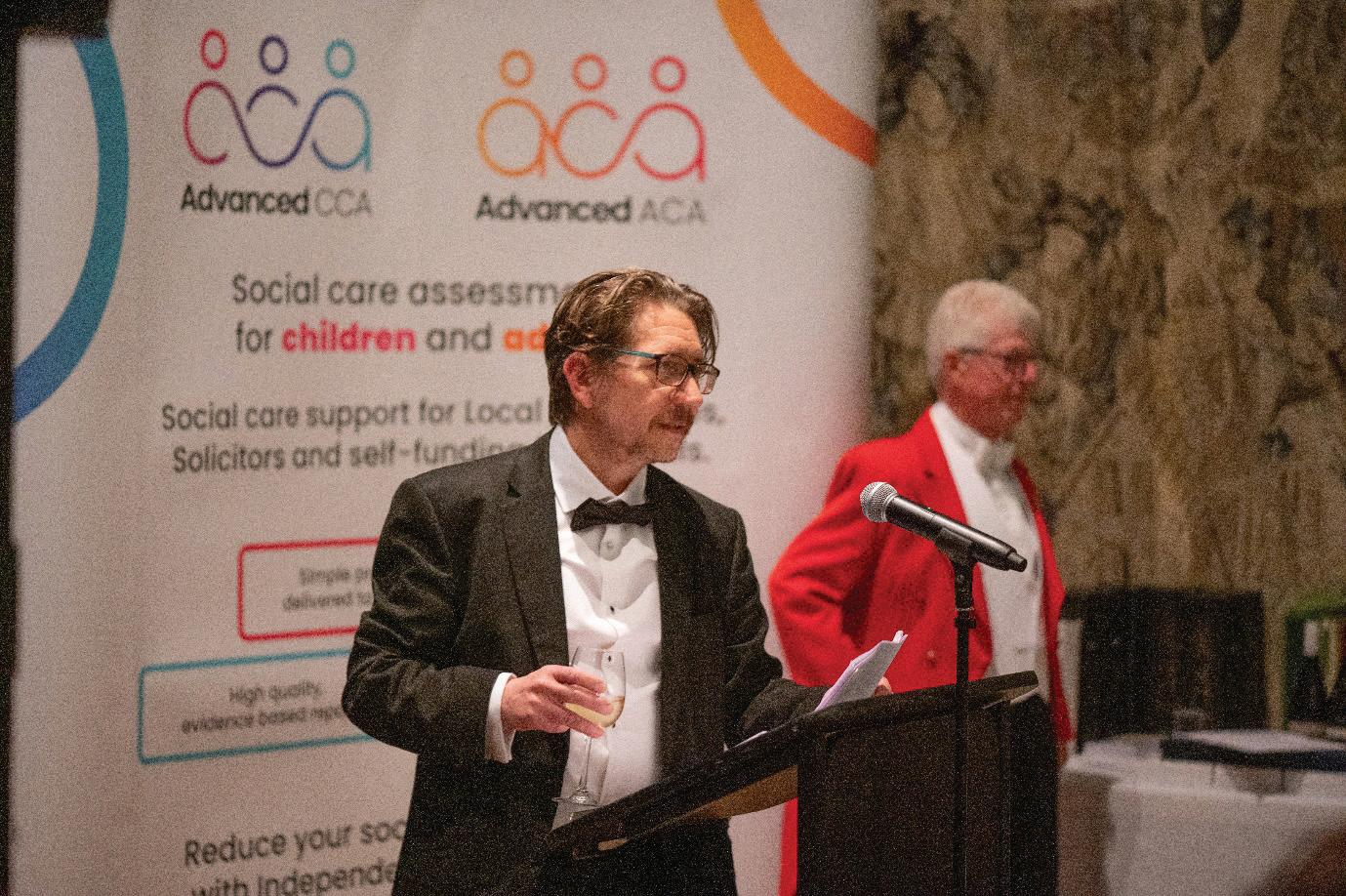
the same numbers attend next year – to be arranged by my current VP, Massimo Trebar, who will take over from me as President from 1 January 2025.
Thank you everyone for a truly wonderful evening. And a final but special shout out to my Master of Ceremonies, Reg Parsons – thank you for everything.
Kirsty Richards President of Hertfordshire
Law Society.
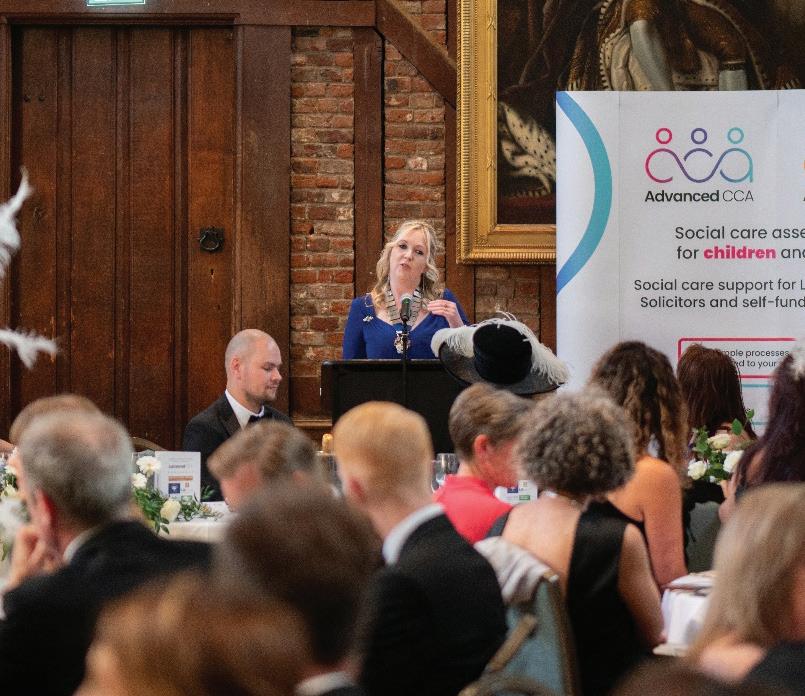
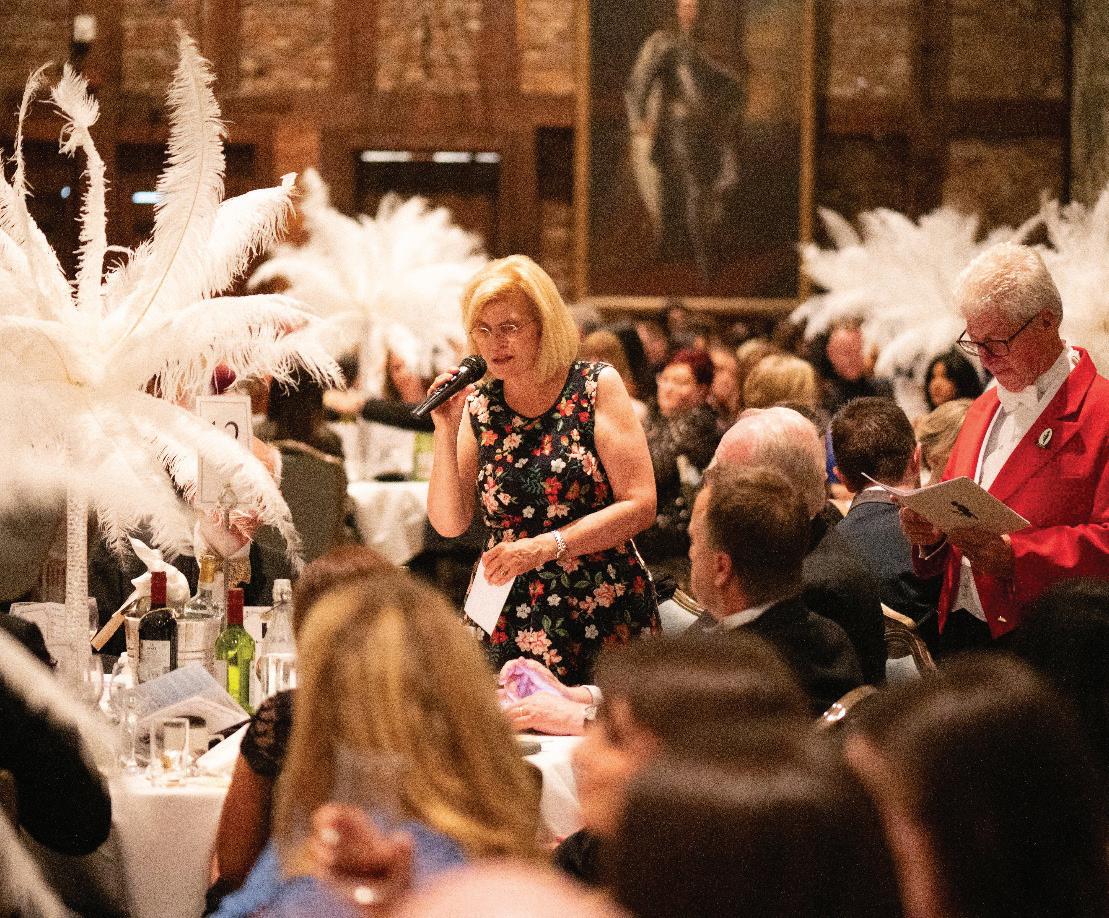
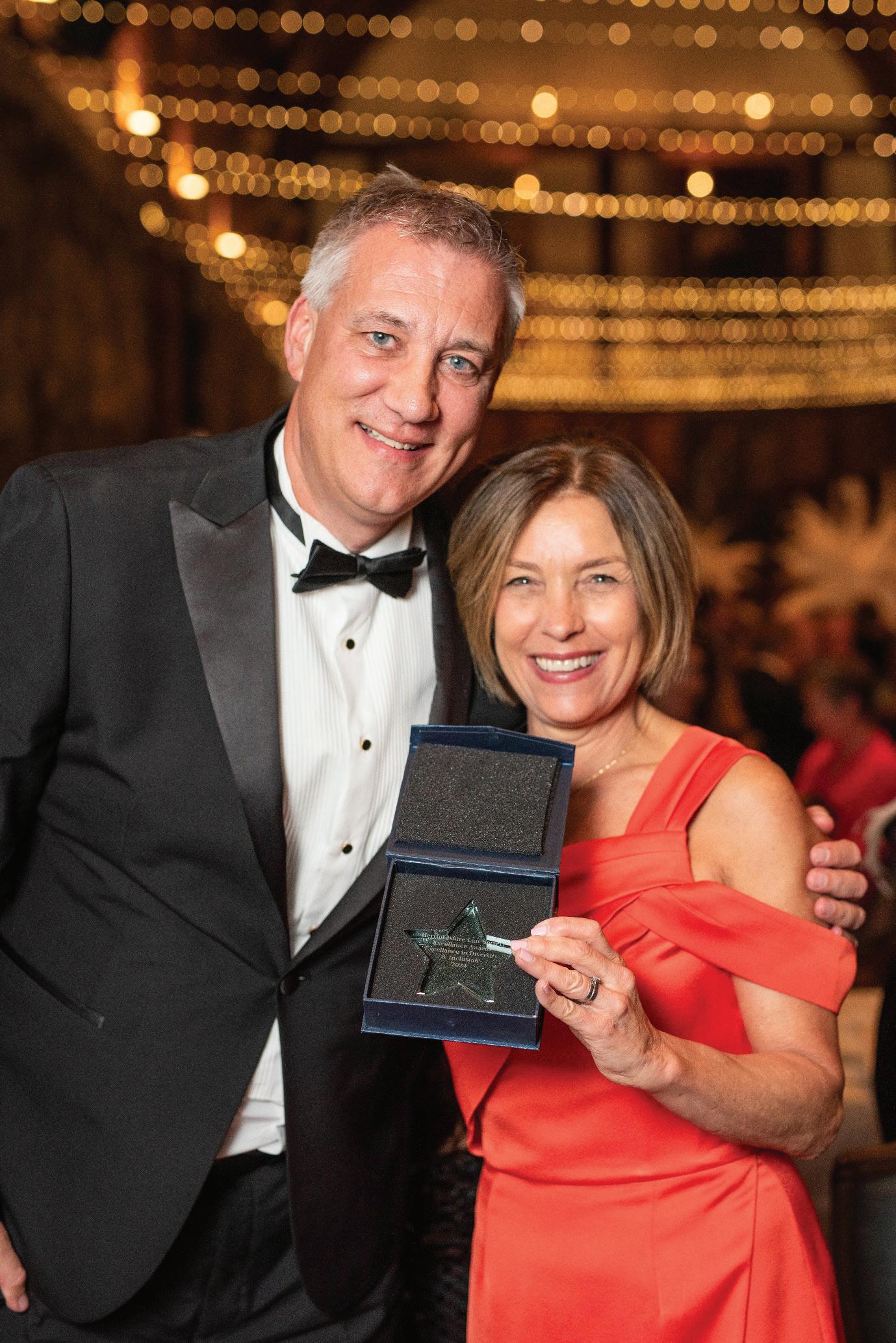
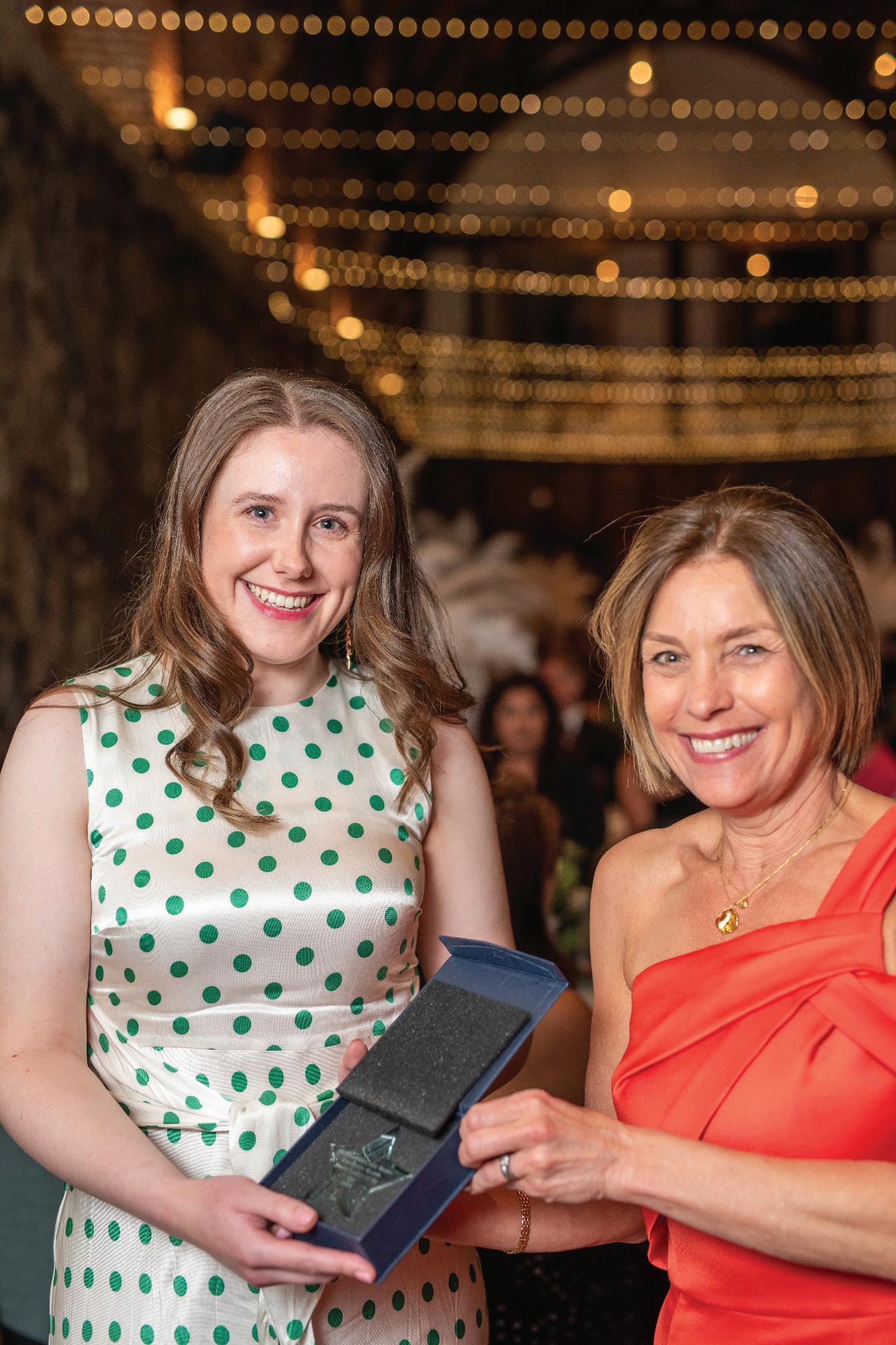
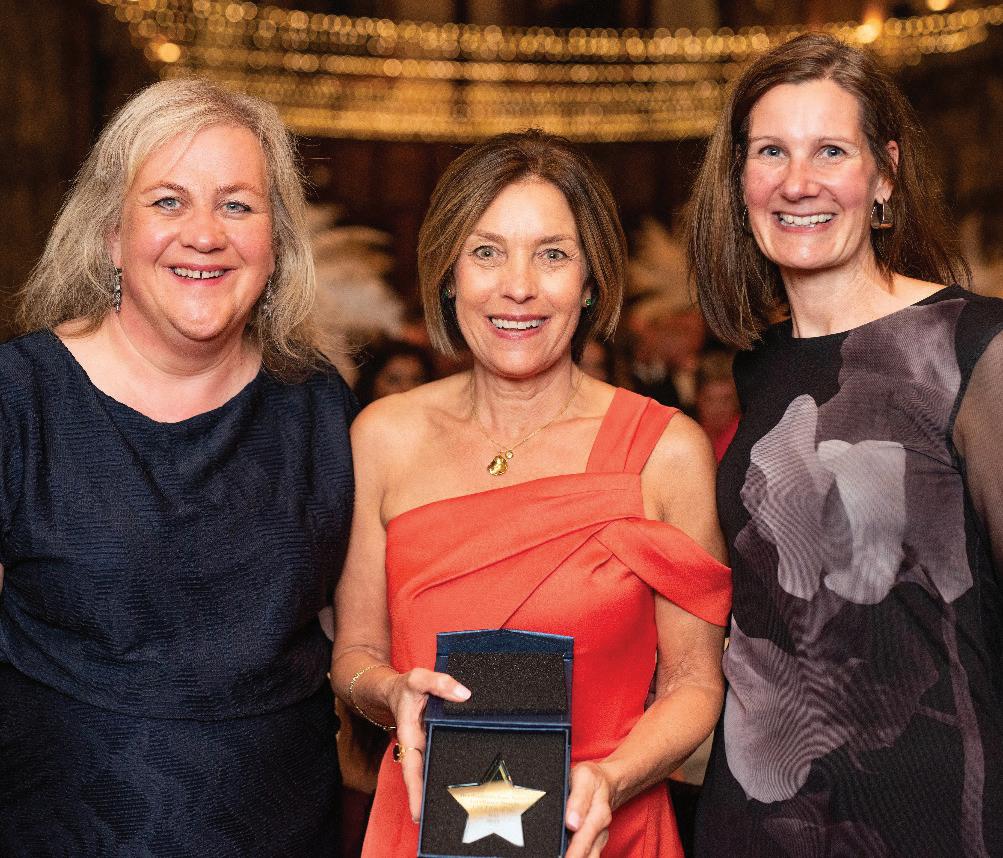
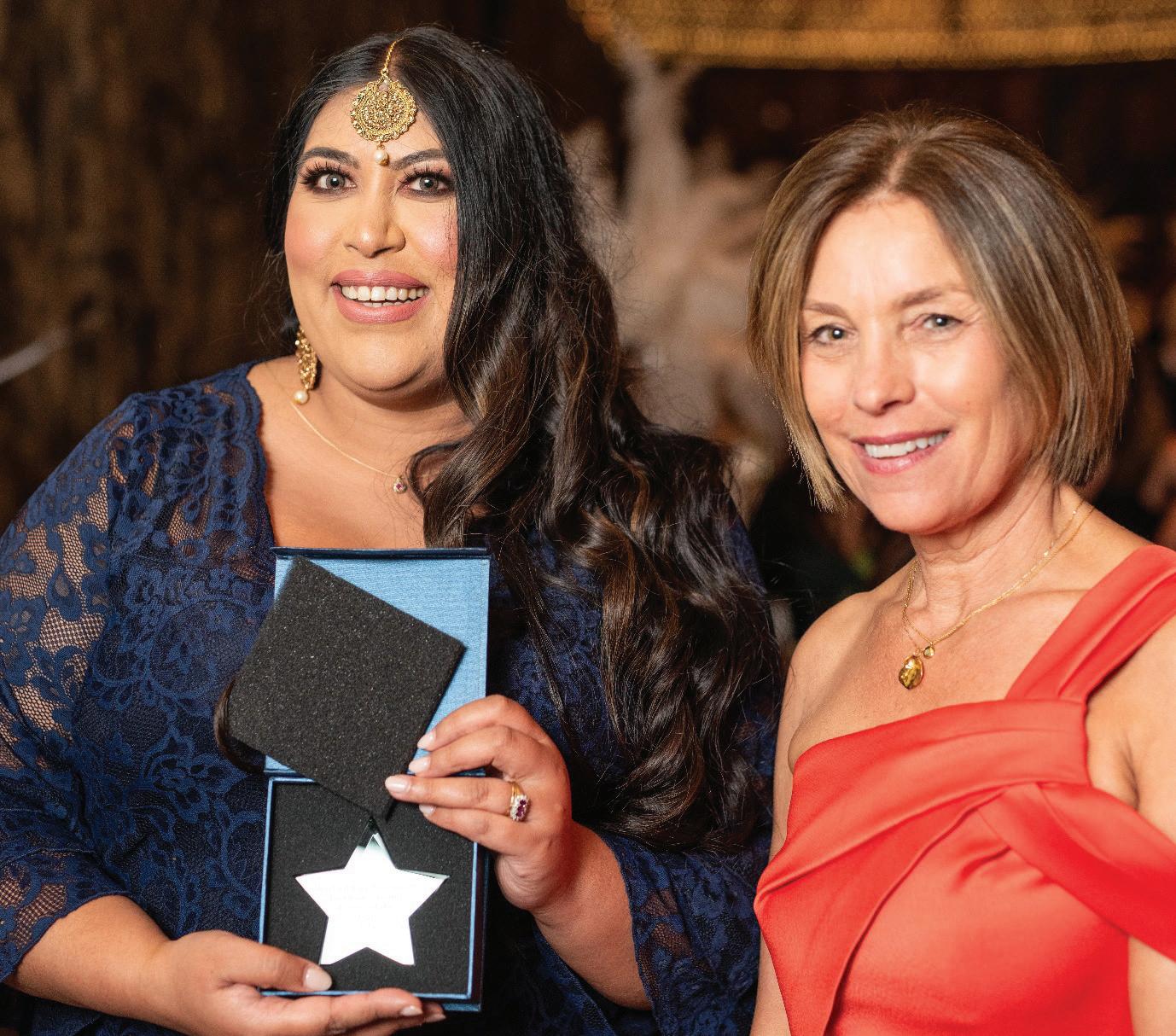


Our annual consumer tracking study has found that public appetite for legacy giving is on the rise, with more than one in five charity donors (21%) aged 40+ saying they have included a charitable gift in a Will, up from one in seven (14%) in 2010. Over the same period, rejection of legacy giving has dropped from 13% to 9%.
Figures from 2023, released today, found that supporters with a Will in their 40s and 50s are most likely to have pledged a legacy gift – with almost four in ten (37%) having included a charity. This compares with around one quarter (27%) of those aged over 60. Legacy pledgers are also more likely to be single and without children or grandchildren. Pledger rates are highest amongst those who are affluent, aware of the inheritance tax incentives and who have sought professional advice for their finances.
Three quarters of supporters (77%) say they would be willing to leave a small percentage of their estate to charity, with more than one in ten (13%) saying they would be open to leaving 10% or more of their estate.
Our consumer benchmarking study*, carried out by independent research firm OKO, surveys more than 2,000 charity donors aged 40+ to track legacy giving attitudes and behaviour year-onyear. Over the last 14 years, the study, which follows Prochaska’s Stages of Change model, has tracked long-term forward movement in legacy giving from awareness through to preparation and action.

Lucinda Frostick, director of Remember
A Charity, welcomes the findings, saying:
“This study shows the long-term positive shift in legacy giving attitudes and behaviour, and that the propensity for giving in this way is gaining ground beyond the Baby Boomer generation, particularly for those in their 40s and 50s. This indicates that there’s great potential for continued growth of the legacy market, but it also stresses the importance of supporter stewardship.
“Legacy income is crucial for an increasing number of charities. While we can’t impact the economic environment that drives legacy values, we can positively influence the proportion of people choosing to leave a gift; by working together, and engaging with legal partners, Government and others to make legacy giving a social norm.”
Will-writing trends
The study shows an incremental rise in Will-writing, with almost two thirds (64%) of supporters having written a Will, up from 63% in 2022 and 62% in 2021. Of those with a Will in place, almost one third (31%) have included a legacy donation, up from 29% in 2022. Around three in ten (29%) pledgers added charities when making changes to an existing Will.
The average age when first making a Will is 51 years, although more affluent individuals are more likely to write their Will at a younger age. Key life stages, such as births, deaths and marriage are the main triggers for Will-writing, with the death of a loved one featuring more heavily for younger Will-making, and retirement a common trigger for older Will-makers.
Professional advisers continue to play a key role in Will-writing with almost six in ten supporters (57%) saying they have used or would use a solicitor to write their Will and 17% a Professional Willwriter. Free Will schemes are more likely to appeal to younger and less affluent audiences.
Legacy giving is one of the largest sources of voluntary income for UK charities, raising £4 billion annually**.
Additional findings include:
• 64% of legacy pledgers haven’t let charities know they have included a gift;
• Of those, almost half (47%) say it never occurred to them to tell the charity;
• And for 25% of them, they can’t see how it would help to let the charities know;
• The biggest barrier to leaving a gift in a Will for supporters is that they want to leave everything to family or friends (63%).
Remember A Charity works with charities, a network of legal advisers, partners and Government to grow legacy giving all year round. We also hosts the annual Remember A Charity Week, taking place 9-15 September 2024.
Remember A Charity members can view the findings in full here: https://www. rememberacharity.org.uk/members-area/ research/
*OKO, Legacy Giving Consumer Benchmark Study
Commissioned by Remember A Charity, the consumer benchmark study explores the public’s attitudes to legacy giving, with regular surveys carried out since 2009. The latest survey was carried out by OKO in December 2023; an online survey of 2,001 charity supporters across the UK, aged 40+. The research has been carried out by OKO since 2021, and nfpSynergy before that.
**Legacy Foresight, 2023
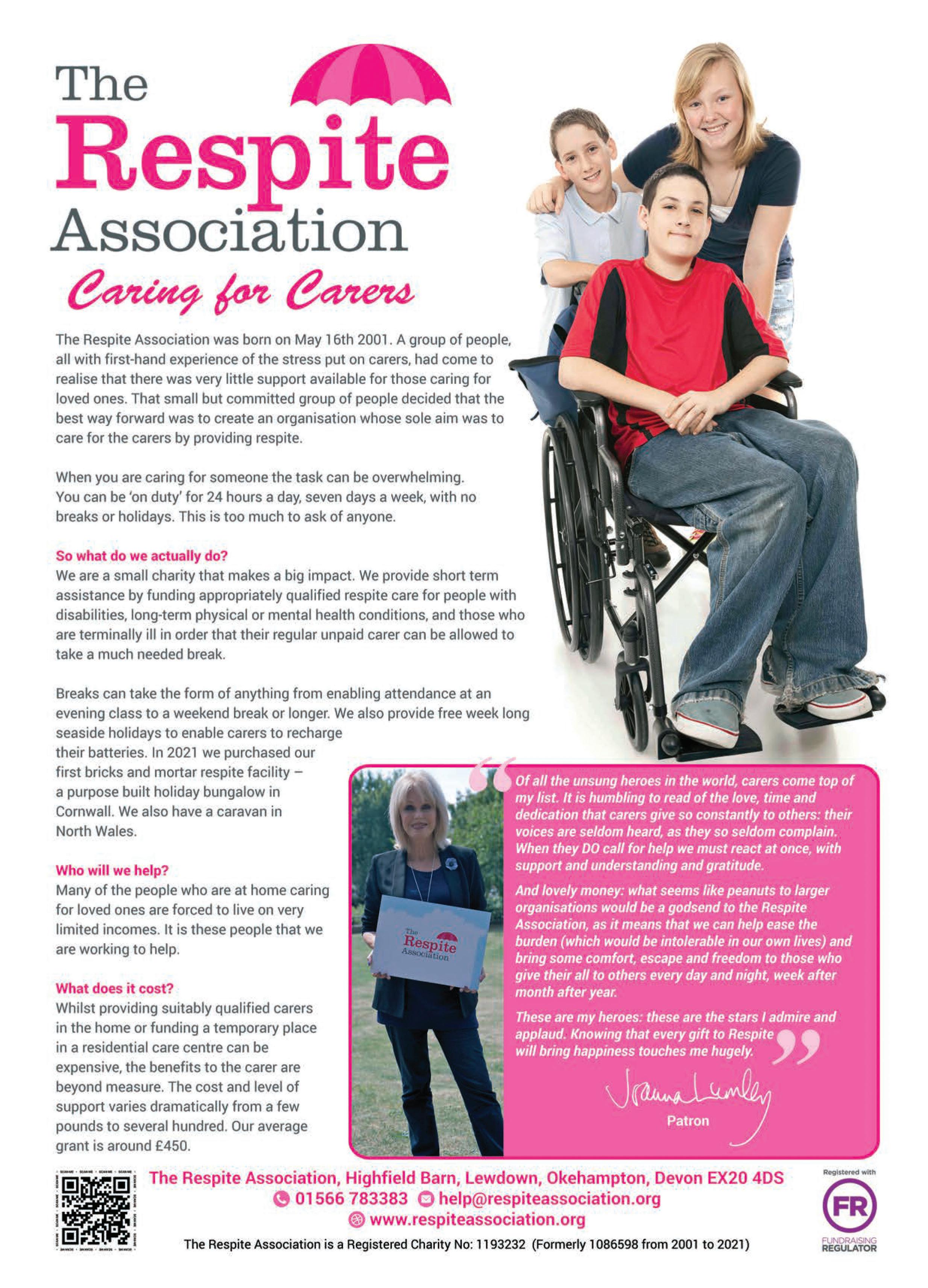


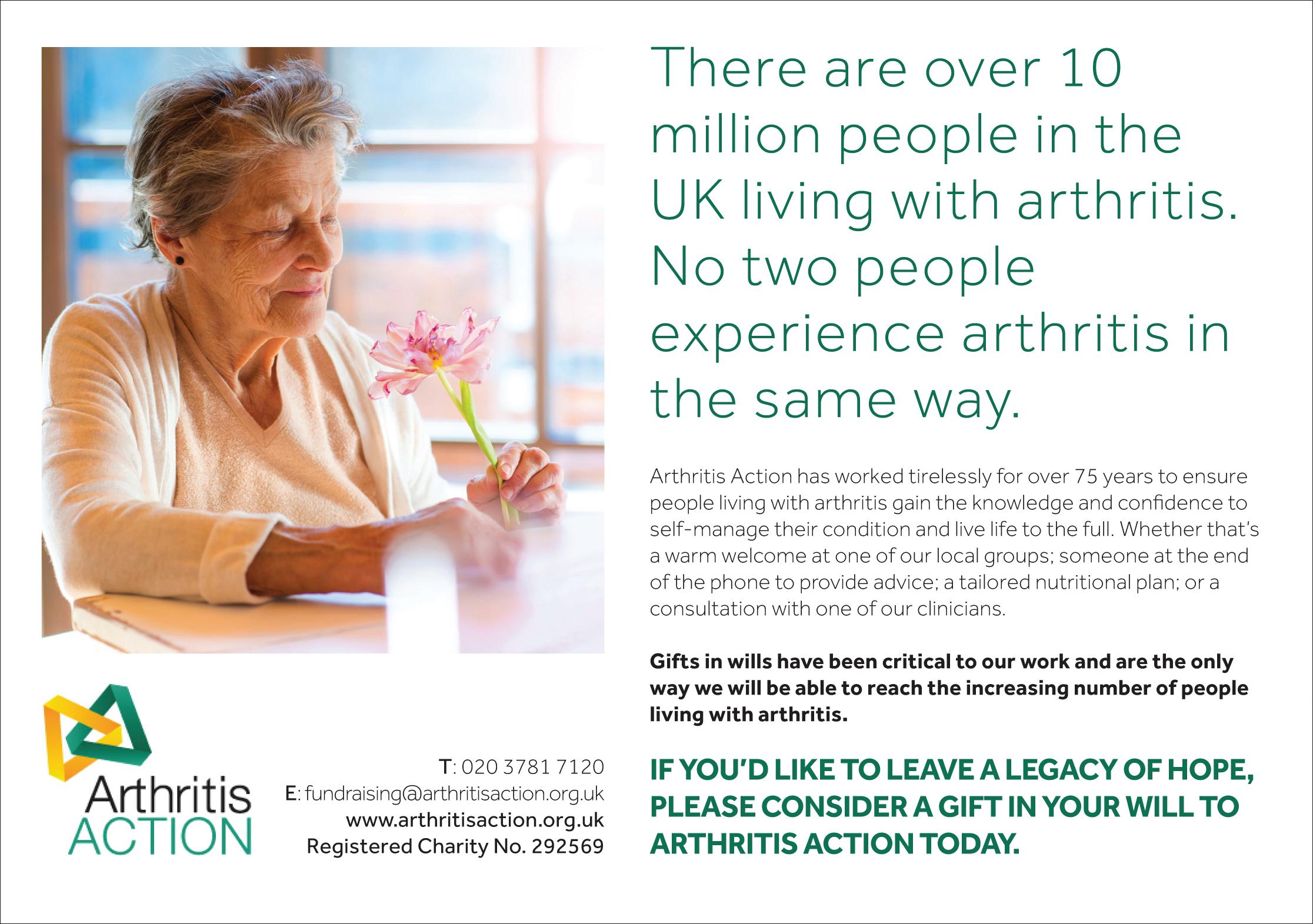

The latest findings released by Legacy Futures reveals that legacy income received by its Legacy Monitor consortium members in the year to March 2024 was £1.81bn – 1% up on the previous financial year.
The income growth has been driven primarily by bequest numbers, which reached almost 60,000 – the highest number of annual bequests ever recorded.
Legacy Futures’ data suggests that the growth in bequests is, in the main part, a result of improvements in the probate process at HM Courts and Tribunals Service (HMCTS). The backlog of probate cases declined in the period analysed, implying that investments made in additional resources are starting to pay off.
Looking forward, the increased numbers of bequests coming out of the probate process and a less pessimistic outlook than expected for house prices means that the legacy market is predicted to remain resilient and show
http://www.hertslawsoc.org.uk/
flat or potentially slow growth for the remainder of 2024.
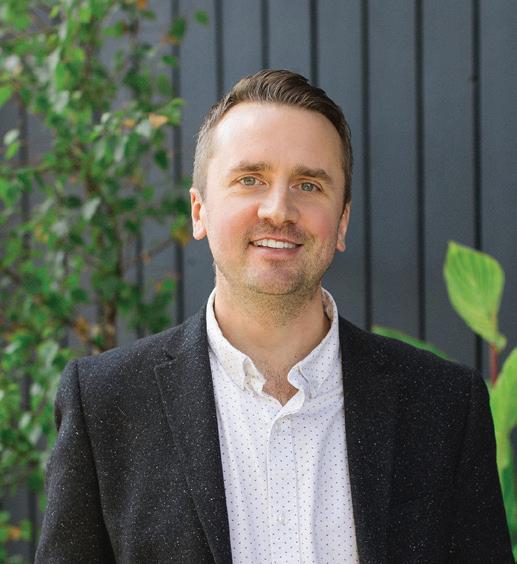
Ashley Rowthorn , CEO of Legacy Futures, said: “Charities and supporters alike have felt , and are still feeling, the impact of the ongoing political instability and cost-of-living crisis. Add to that the delays at probate, and legacy giving, although still a reliable income stream for charities collectively, wasn’t seeing the levels of growth that had previously been predicted. It’s great news for charities therefore that bequest numbers have reached a record high and that efficiencies at HMCTS have started to improve.
Income resilience is what’s needed in the current climate and it’s very positive indeed that this research points to that being a reality for the future of the legacy market.”
About Legacy Futures’ Legacy Monitor Legacy Monitor is a consortium research programme to analyse, benchmark and debate trends in the legacy market. Set up
in 2008, it incorporates an annual review of trends in the legacy market, and a quarterly benchmarking service. This year’s programme benchmarks 81 of the UK’s leading charities, who together account for almost half of the legacy market. Thank you to our member charities for agreeing to share top-line legacy performance data with the sector, allowing information and insight to be gained. The next quarterly data will become available in August 2024.
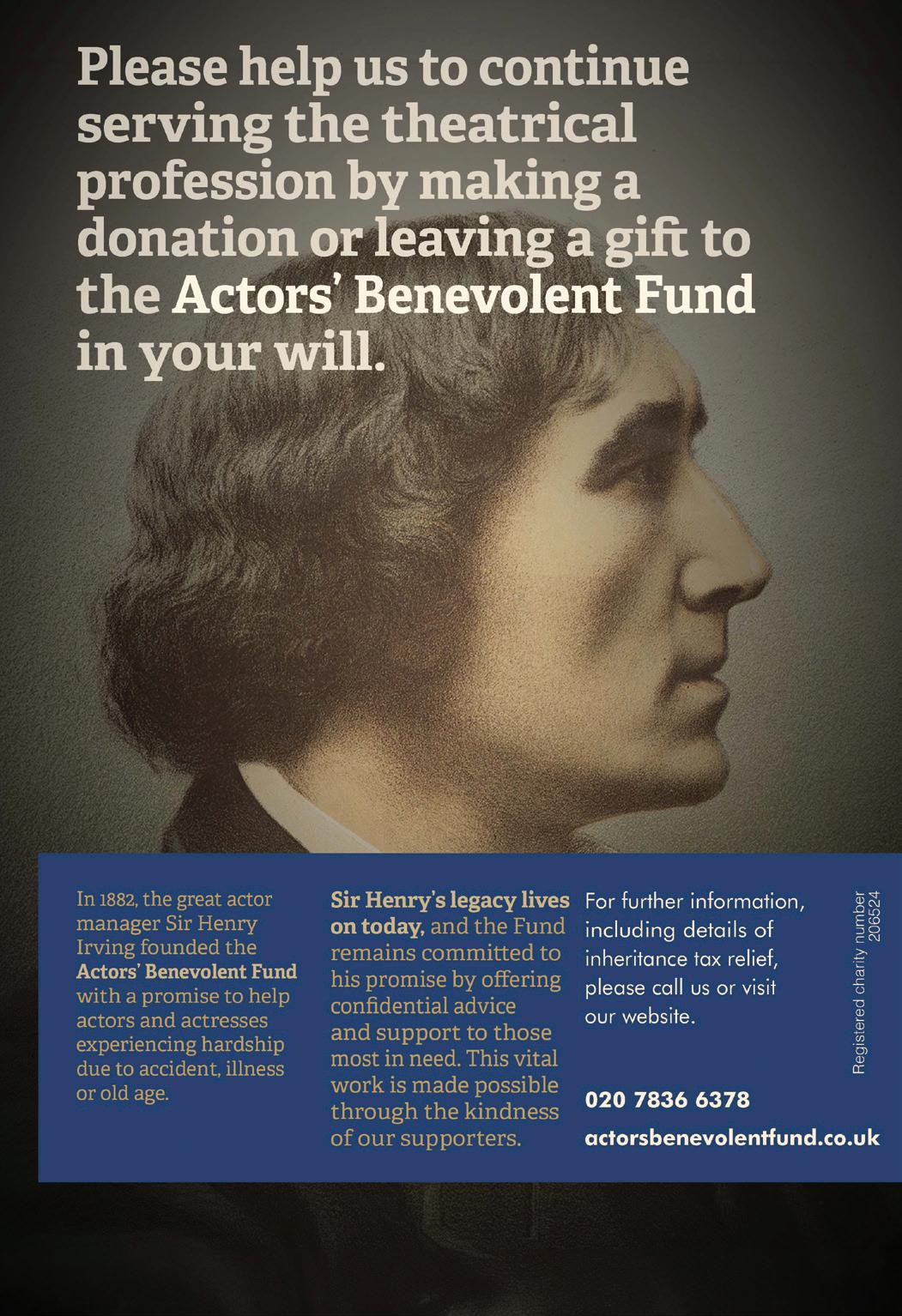
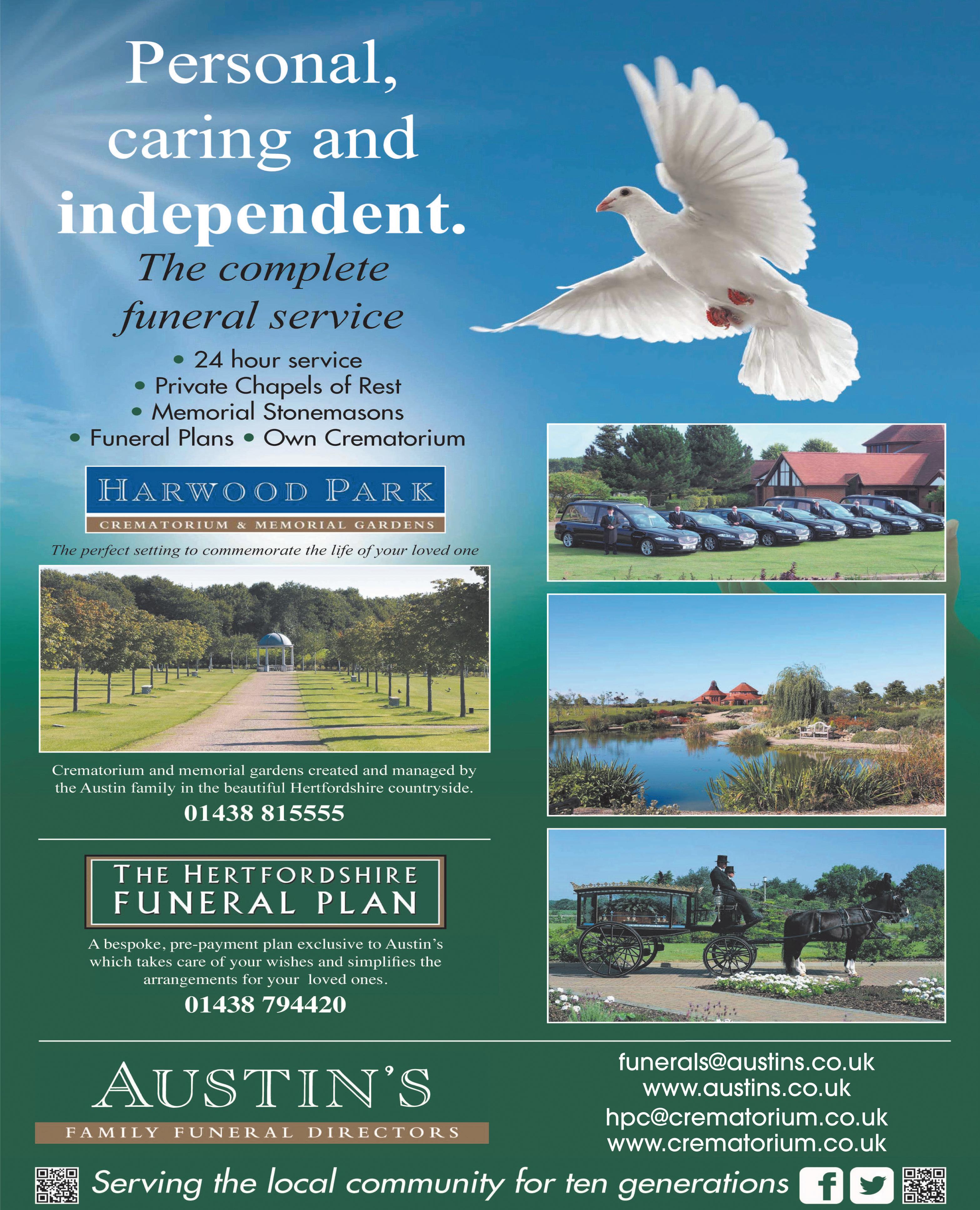
Agame changing new app launched by tech developer Professional Office is set to radically change the way financial services firms verify their client identity and improve their KYC process.
As part of the company’s SanctionsSearch. com© suite of tools, users can now VERIFY the identity of people from anywhere in the world holding a valid biometric passport simply by using the smart phone app, ValidateMe.
ValidateMe© takes customers through a comprehensive, sign posted journey of collecting documents, liveness facial recognition and the current ‘live’ status of the documents presented.
And it is all done via the applicant’s smart phone.
The technology - cleverly - unlocks the NFC chip in the passport to confirm the individual is actually who they say they are. Critically, all data is then cross verified to ensure that all the information is authentic.
“Our new product is set to radically transform the way financial services and associated legal and professional services firms do business,” said MD Chris Clare.
“There’s a host of software products out there that claim to be market leaders in the verification process, by using ‘liveness’ and facial recognition to match people with images on documents.
“But while none are inherently bad, most are not 100 per cent perfect,” added Clare.
“The problem is, they all rely on the validity of the document, such as the included data, and - amongst other things - the photo of the person on a passport.
“If that photo or document is compromised,
then any validation that comes from it is inherently flawed. And then you have a big problem,” said Clare.
“Here at Professional Office, we have focused our energies over the last four years and developed our NFC (Near Field Communication) PCV (Passport Chip Verification) tool
“We believe it is the most state of the art ID verification tool available.”
So, how does it work?

“The NFC chip in a passport contains an encrypted copy of all the data printed on it, including the photo of the client, which should match the one visible on the document.
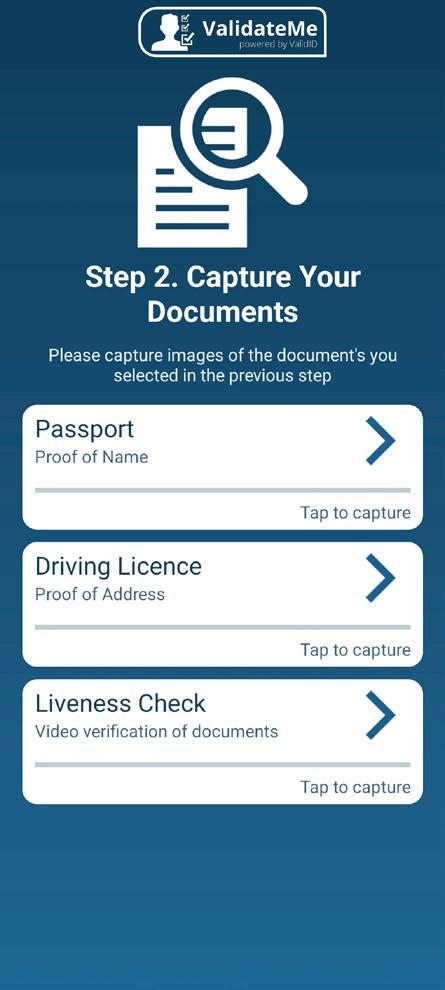
http://www.hertslawsoc.org.uk/
“All this data is digitally encrypted and signed with a verifiable Government - issued secure certificate.

“That government-issued encryption certificate held on the chip is verified to ensure that the data has not been tampered with, providing one of the most robust ID verifications on the market at the moment.
“All data collected by ValidateMe© is fully encrypted on the phone ensuring it is not accessible to anyone. Once it has been used it is permanently removed from the device.” explained Clare.
www.professionaloffice.co.uk



According to Law Society surveys*, professional indemnity insurance (PII) is one of the most significant outlays for a law firm.
As PII is compulsory it is not surprising that at times it can feel like a frustrating purchase. So what are underwriters looking for and how can you find an insurer that suits you?
The danger of optimism bias
Optimism bias,** the tendency to overestimate the likelihood of experiencing positive events and underestimate negative ones is a challenging mindset when it comes to managing risk. The reality is that claims against law firms do happen. At HDI, we have insured hundreds of firms on a primary basis for over 15 years. In this time, we have seen many examples of claims and allegations brought against law firms. The financial, emotional and reputational toll can be huge.
Law firms are operating in a rapidly changing world, and it feels as though the pace of change is increasing. At HDI we believe in preparation rather than in prediction, and we insure firms whose values align with this business philosophy. We can’t always see what is coming, so building resilience within the firm is key to navigating what might come next.
At HDI, what are we looking for?
As your insurer, we are there for you when the worst happens. However, insurance is just one tool in your armoury against risk. We look for firms that invest in a clear and robust risk management strategy. We want to hear about how you identify and manage risk in your firm, which can include risk management planning, business continuity plans, file review policies, supervision policies and external audits.
When reviewing a firm’s proposal form, I like to pay particular attention to the answers that help to give me an insight into the culture of the firm. Your submission can be really enhanced for example, by sharing the history of your firm, any particular specialisms, your future goals, the type of work you like to do and the type of work that you would turn away. These things allow us to take a more holistic view of your firm, beyond the rating data that is captured in a proposal form.
Getting your submission in early and in full order is vital. Work with your broker to ensure you have up to date claims summaries. It is also really helpful to include a narrative around any open and closed claims. Things like, what the allegation was and what lessons have been learned. The fact that you may have experienced a claim is not always an issue – at HDI we recognise that there is often a story and we are open minded and willing to listen.
We are seeing an increase in the frequency of high value claims. The reasons for this include, rising asset values, more complex transactions and defence cost inflation. Worryingly the market has begun to see claims exceeding the compulsory primary limit. Firms should have heightened risk management measures in place when taking on matters of high value, or when acting for clients of considerable net worth.
Conveyancing remains the main source of claims, both from a frequency and an overall cost. In addition, there is a notable jump in claims from wills, trust and probate work. The drivers for this are a combination of more complex family structures, increases in overall estate values and the challenges that
can arise with people living longer. Our advice is that this would be a good time to conduct a review of policies and procedures and implement targeted refresher training for staff.
Looking further into the future, insurers will be considering the impacts of the economic and political environment as drivers for claims, the impact of AI, the continued threat from both cyber and fraud. At HDI we believe that we have the strength and stability to support our insureds now and for the long-term.
If you are a firm with a turnover of under £20m and would like to obtain a quotation from HDI please contact Lockton Insurance Brokers.
Solicitors@lockton.com 02079332034 / 02079332083
*https://www.lawgazette.co.uk/newsfocus/news-focus-trends-in-professionalindemnity-insurance-2023-mainfindings/5116726.article
**https://en.wikipedia.org/wiki/Optimism_ bias

Sarah White, Underwriting Manager, HDI Global Specialty SE

As all Deputies and Court of Protection specialists will know, applying for a Statutory Will can be a complicated and time consuming matter. As part of the duty of care, and requirements for making a Statutory Will, it is necessary to hold a copy of the person’s existing Will, a draft of the proposed Will, details of their family, assets and income, as well as medical evidence of their incapacity in order to provide these to the court, together with any other evidence the court requires.
Anyone who would be potentially affected by the application (perhaps a beneficiary who would lose out, for example) will be a party to the court proceedings. Finders International specialises in researching P’s next of kin, providing a verified family tree and a full report of the required findings to support your Application to Court.
Here are some of the ways in which a probate genealogist can help:
1. Verifying Family Tree Information: We can conduct thorough research to trace and identify all of P’s next of kin according to intestacy rules. We can do so with little or no contact with the family, at the authority of the Deputy, and ensure that our research is backed by documentary evidence.
The court or the deputy may receive information about P’s family from various sources, including family members. This information can often be inaccurate; therefore, we can verify the accuracy of any information already held, ensuring that the family tree is comprehensive and reliable.
2. Resolving Complex Family Scenarios: In cases where the family structure is complex or unconventional, a probate genealogist can provide expertise in unravelling intricate family scenarios. This includes stepsiblings, half-siblings, or other unique family relationships. With modern families spread across the globe
our international expertise can assist in even the most complicated of family make ups, and wherever people may live.
3. Ensuring you are aware of P’s existing Will and financial assets
Ensuring you know of any Will P may have made in the past is crucial to this process. Finders can assist by conducting a comprehensive Will Search to identify any Will that may have been made before P’s affairs were managed under Deputyship Order. Additionally, a full missing asset search can also be conducted for P, ensuring that you are aware of the full financial picture.
4. Providing Evidence for the Court:
The findings of a probate genealogist can be presented as evidence to the Court of Protection. This documentation helps validate the accuracy of the family tree and ensures the correct family members are notified of the process.
Insights into the research process
A question that we are often asked is, ‘How do you do it?’ Many who have researched their own family tree will know that birth, marriage, and death records are essential in confirming findings. At Finders International, we also have in-house databases, local representatives, and a network of international researchers to assist with our research. Each case comes with its challenges, including children born out of wedlock, overseas research and common surnames. Our team work on cases with these elements on a daily basis and carry out research for Court of Protection teams all over the country, so have the experience to overcome these research hurdles.
Study
At the point of our instruction, the only information held was that P had a deceased partner and one living cousin.
Our research first confirmed that P had no children and was an only child.
Extensive research using all available genealogical resources confirmed that P had no living Paternal family. However, we confirmed that P’s maternal family was larger than expected.
During the course of our research, we identified 6 maternal aunts and uncles who left descendants, identifying a number of living cousins.
As part of our verification process, we obtained birth, marriage and death certificates and identified current addresses for all P’s next of kin. This information was provided to the Deputy in an easily digestible family tree and report, with appropriate supporting documentation. In this case, at the Deputy’s request, no contact was made with the family before our report was submitted.
Our involvement in this case was key, as we identified three more family members in addition to the cousin previously known. This full picture enabled the Deputy to proceed with the Statutory Will Application and notify all the correct next of kin.
Our expertise in genealogical research ensures a thorough and accurate representation of the P’s family connections, enabling confidence in the information provided to the Court for the purposes of obtaining a Statutory Will.
Finders International can assist predeputyship application if the court requires you to contact family, friends or neighbours of P. We can also assist with Statutory Will Application research, Missing Will and Assets searches, Administrator searches and Unoccupied Property Insurance. If you have a case like the above or have any questions regarding our services, contact us today at quotes@findersinternational.co.uk, call 0800 085 8796 or visit our website www. findersinternational.co.uk

